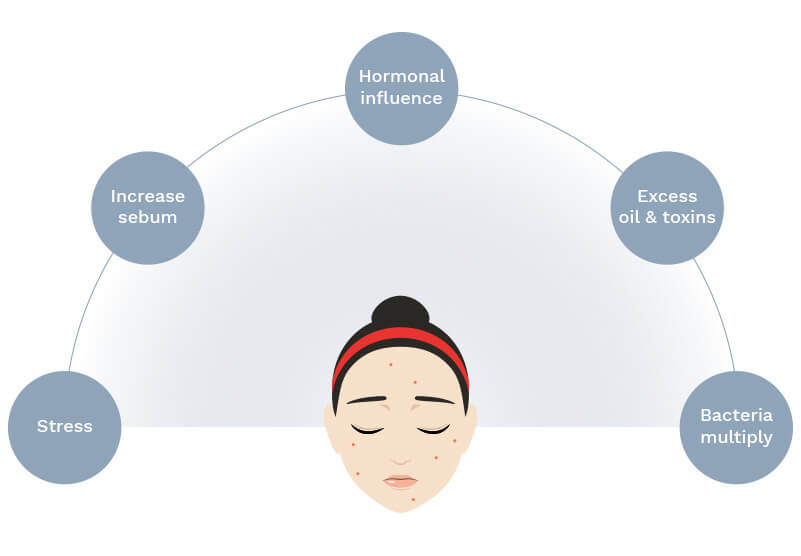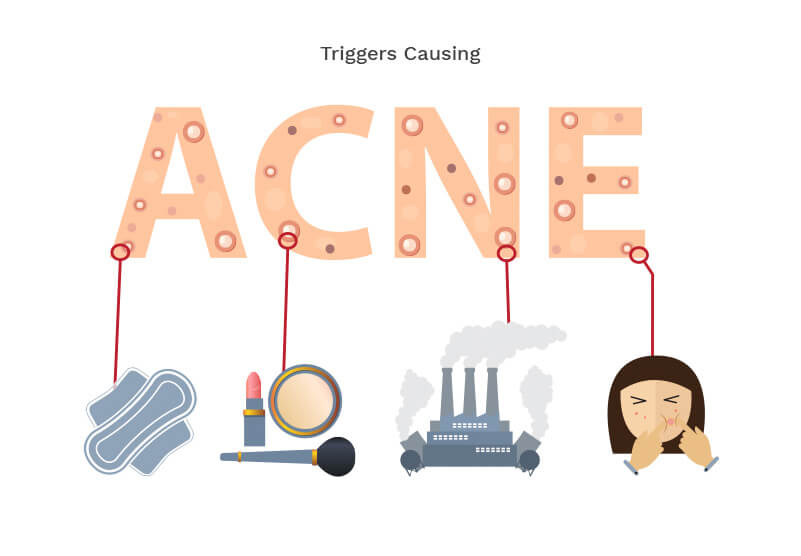Acne - Causes


People with acne often wonder: “Why me of all the people in this world?”
Many people have tried to explain why acne occurs in some, and not in others. However, the precise cause of acne still remains a mystery.
Though we do not quite know the 'why', we do know the 'how'. Here is how acne develops:
The pores (hair follicles) in our skin are closely associated with oil glands, called ‘sebaceous glands’, which produce sebum. Sebum is an oily substance that lubricates our hair and skin.
When sebum is being secreted, the dead skin cells are also being expelled from the lining of the pore at the same time. Sometimes, when too much sebum is produced, it accumulates, thus clogging the pore.
When the pore gets blocked, the sebum or dead skin cells cannot leave the pore. This leads to swelling around the pore, and the result is acne. At times, bacteria can also build up inside, leading to the formation of pus.
Listed below are some of the most common causes of increased sebum production, which ultimately leads to the formation of acne:
- Hormones - acne is precipitated by hormones that are present in both sexes. The oil surplus created by these hormones is instrumental in clogging the hair follicles. In women, hormonal changes occur with puberty, menstrual periods, pregnancy, use of birth-control pills and menopause, and each of these are a potential phase for developing acne. Polycystic ovarian syndrome is also a common cause of acne.
- Genetics - heredity plays a significant role in the development and persistence of acne.
- Medications - certain medications can lead to severe outbreaks of acne in some individuals.
- Stress - the changes induced by stress have been extensively studied over many decades, and hormonal changes are one of the results of stress, which can lead to acne.
- Bacteria - people with acne have more bacteria trapped in the skin surface than compared to people without acne.
- Diet - it is not known for sure whether diet is a cause of acne. There seems to be a wide disparity over this in the opinions of dermatologists as well as patients. However, many patients see an increase in acne after too much intake of spicy foods, caffeine, excessive sweets, alcohol, chocolates, red meat, corn, gluten, etc.
- Cosmetics - certain cosmetics used over a long period of time can lead to acne. Face creams, foundation creams, overnight creams and moisturisers are known to cause more harm than lipsticks and blush-ons.






